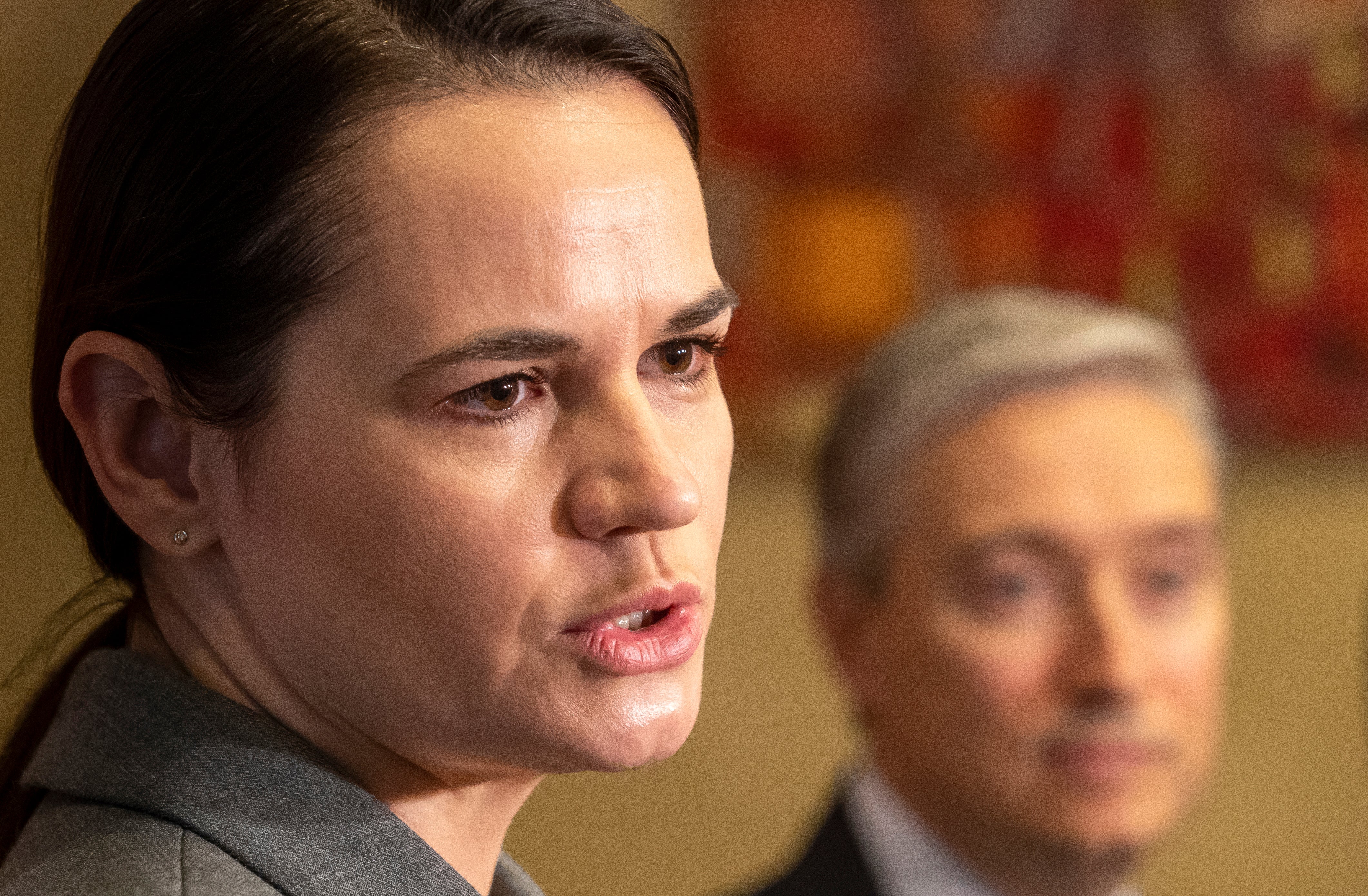EU awards human rights prize to Belarus opposition
The European Union has awarded its top human rights prize to the Belarus opposition movement and its leader Sviatlana Tsikhanouskaya for their challenge to President Alexander Lukashenko’s long, hard-line reign

Your support helps us to tell the story
From reproductive rights to climate change to Big Tech, The Independent is on the ground when the story is developing. Whether it's investigating the financials of Elon Musk's pro-Trump PAC or producing our latest documentary, 'The A Word', which shines a light on the American women fighting for reproductive rights, we know how important it is to parse out the facts from the messaging.
At such a critical moment in US history, we need reporters on the ground. Your donation allows us to keep sending journalists to speak to both sides of the story.
The Independent is trusted by Americans across the entire political spectrum. And unlike many other quality news outlets, we choose not to lock Americans out of our reporting and analysis with paywalls. We believe quality journalism should be available to everyone, paid for by those who can afford it.
Your support makes all the difference.The European Union has awarded its top human rights prize to the Belarus opposition movement and its leader, Sviatlana Tsikhanouskaya for their challenge to President Alexander Lukashenko’s long, hard-line reign.
“It is an honour to announce that the women and men of the democratic opposition in Belarus are the 2020 Sakharov Prize laureates," European Parliament president David Sassoli said.
“They have on their side something that brute force can never defeat: the truth. Do not give up on your fight. We are by your side."
The 27-nation bloc agreed this month to impose sanctions against officials suspected of election misconduct and a brutal security crackdown on protesters in Belarus. The EU has warned it is ready to sanction Lukashenko himself if he fails to enter into talks with the opposition and order an end to the repression launched after a disputed election.
Lukashenko won his sixth term in office in a presidential election widely seen as rigged. Since the Aug. 9 polls that handed Lukashenko a victory with 80% of the vote, mass protests have rocked the ex-Soviet nation sandwiched between Poland and Russia.
Tsikhanouskaya, Lukashenko’s main challenger, got 10% of the vote. She and her supporters refused to recognize the results, saying the outcome of the vote was manipulated.
A 38-year old former English teacher with no previous political experience, Tsikhanouskaya joined the race after her husband who aspired to run for president was jailed. He has remained in prison.
Tsikhanouskaya has rejected the official tally and refused to concede defeat, but was forced to move to Lithuania under pressure from authorities.
Tsikhanouskaya shares the prize with several leading members of the opposition’s Coordination Council, which was created after the election in a bid to facilitate talks on a transition of power.
The EU award, named after Soviet dissident Andrei Sakharov, was created in 1988 to honor individuals or groups who defend human rights and fundamental freedoms. Last year's winner was economist Ilham Tohti for his work defending China’s Uighur minority.
Others on the shortlist for the award this year were activists defending the Guapinol river in Honduras and murdered environmental activist and indigenous leader Berta Caceres. Najeeb Michaeel, the archbishop of Mosul, also made the cut for his role in the evacuation of Christians, Syriacs and Chaldeans to Iraqi Kurdistan and safeguarding historic manuscripts after the Islamic State arrived in Mosul in 2014.
The prize will be presented in a ceremony in Strasbourg, France, on Dec. 16.
___
Vladimir Isachenkov in Moscow contributed to this story.